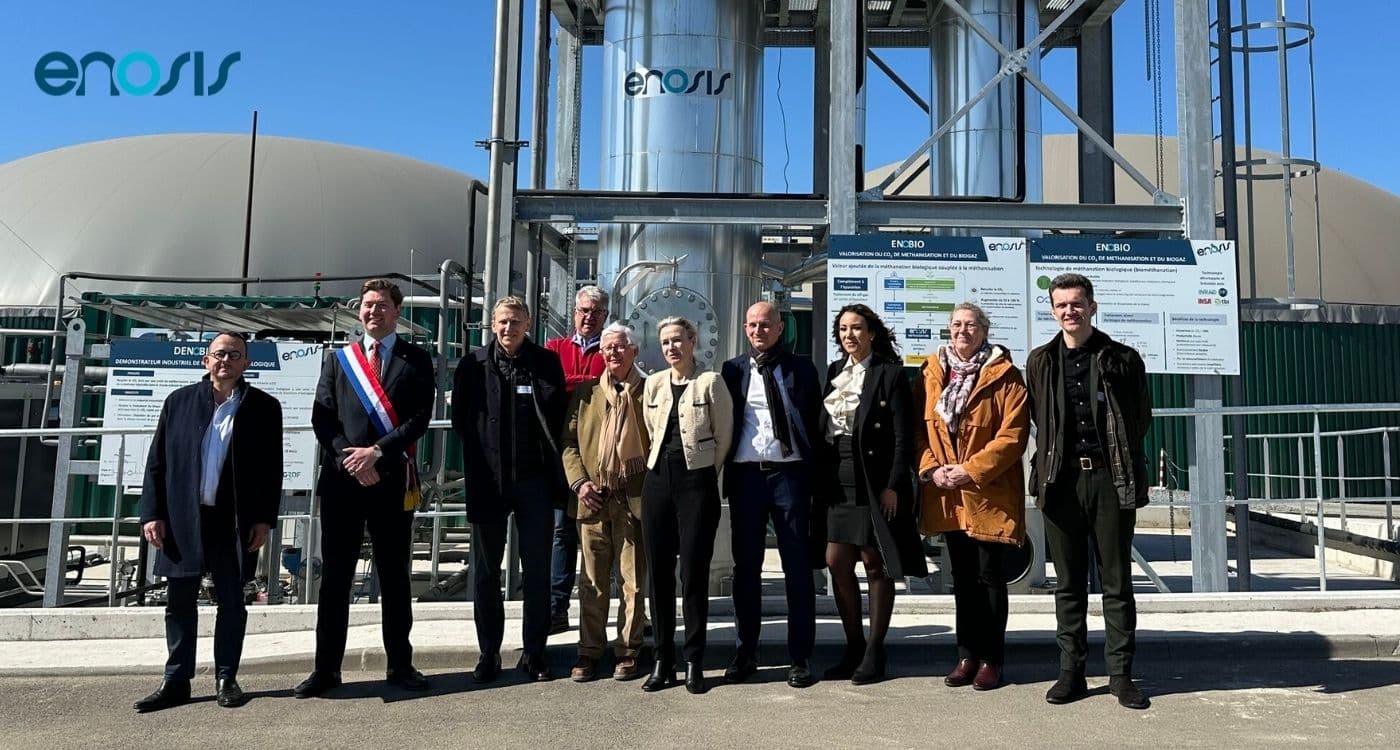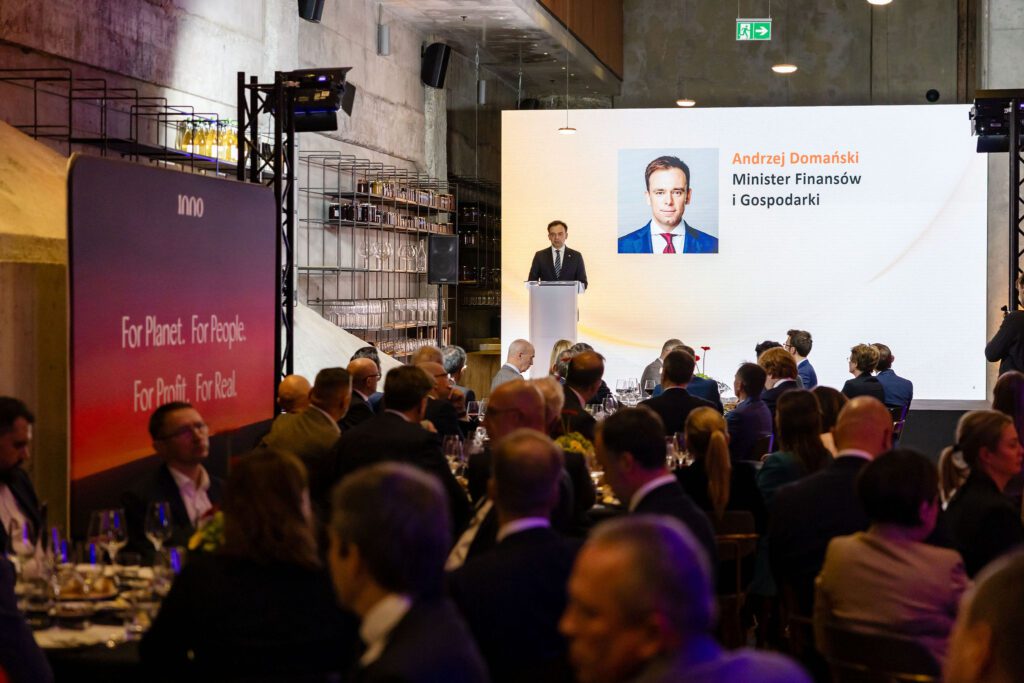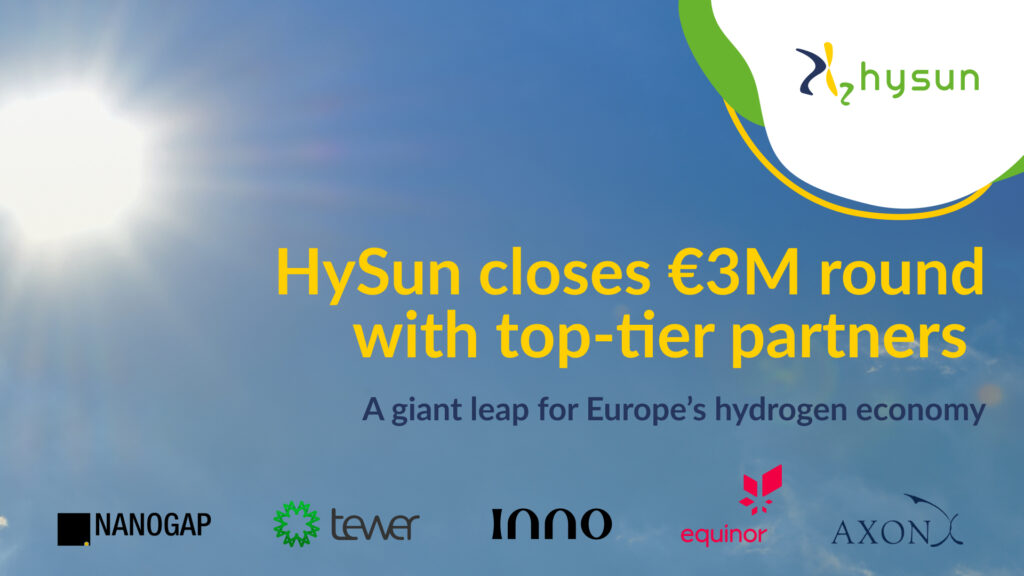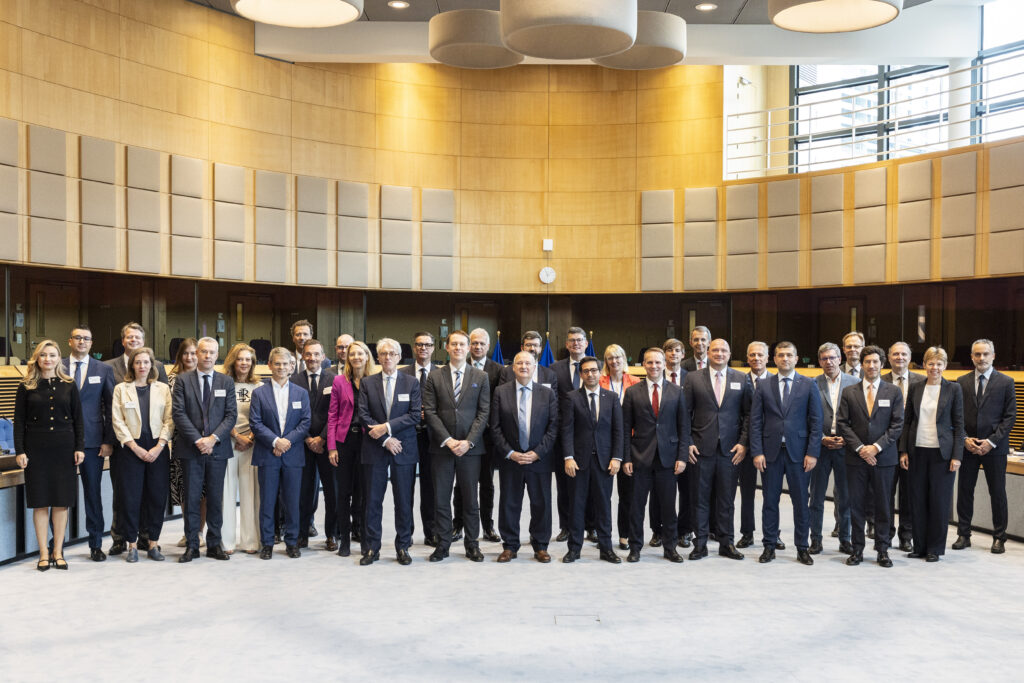Enosis is opening its DENOBIO industrial demonstrator, a pioneering facility located in the Hauts-de-France region. This project maximises methane production by recovering the CO₂ from an agricultural methanisation unit. The methane produced, from the CO2, will soon be injected into the natural gas network operated by GRDF.
The inauguration of the DENOBIO plant marks a further milestone in the industrialisation of the biological methanation process designed by Enosis. The French pioneer in the recycling of CO2 into renewable gases and fuels has spent more than ten years on research and technological development, culminating in the commissioning of the first installation of its kind in France, before launching several commercial projects.
A new technology to produce green gas for injection into the French grid
Methanation involves combining hydrogen and CO2 to produce methane. The process developed by Enosis is called biological methanation. It is based on an innovative and sustainable biotechnology based on micro-organisms, developed jointly with French laboratories.
Enosis biological methanation units can be integrated into methanisation sites, which produce green gas from biomass (agricultural residues, livestock effluents, waste, etc.). The Enosis process captures the CO2 released during the purification of methanisation biogas. This increases methane production by more than 50%, without any additional biomass consumption. It can also treat CO2 from pyrolysis and gasification installations or industrial sites.
In addition to CO2, the methanation process requires a supply of hydrogen. This can be produced by electrolysis of water using renewable electricity. The installations designed by Enosis convert surplus renewable electricity into gas, which is easier to store and transport. The methane produced by methanation is then classified as ‘renewable’. When injected into existing gas infrastructures, it replaces fossil gas, with identical properties for all uses.
DENOBIO, a demonstrator and an industrial “first of a kind”
The DENOBIO project is both an industrialisation tool and a display case. As such, Enosis initially plans to treat the CO2 released by the scrubber at its partner Energia Thiérache’s methanisation unit, into which it is integrated, and then the biogas produced by the unit. For Enosis, the aim is to demonstrate the various ways in which hydrogen can be integrated into a methanisation site: as a complement to the biogas purifier, or as a substitute. In all cases, the hydrogen needed for DENOBIO is supplied by Lhyfe, which produces it at a remote site using an electrolysis process based on renewable electricity. The gas produced by DENOBIO is to be injected into the natural gas network, a first in France.
DENOBIO also aims to optimise operating conditions and methods, in cooperation with the operators of the methanisation site, and to assess the environmental footprint of the process.
DENOBIO, a collaborative project involving local players, industry and scientists
DENOBIO is the result of collaboration between Enosis and a number of partners, including the Energia Thiérache agricultural methanisation site. This cooperation demonstrates the potential synergies between local agriculture and industrial innovation.
DENOBIO also includes a close partnership with GRDF for all matters relating to the metering and injection into the network of gas produced by methanation.
Finally, DENOBIO has a more scientific component, involving Enosis and the TBI laboratory at INSA Toulouse, a long-standing partner of Enosis. This involves advanced modelling of the process, with the creation of a digital twin.
DENOBIO is a project funded by the French government as part of ‘France 2030’, and operated by ADEME. It is also supported by the Hauts-de-France Region and GRDF.
DENOBIO is the winner of the ‘Hydrogen technology building blocks and demonstrators’ call for projects, operated by ADEME as part of the France 2030 investment plan. The project is also the winner of the call for projects jointly backed and financed by GRDF and the Hauts-de-France Region, to support the development of an initial biological methanation demonstrator adapted to agricultural methanisation units. More specifically, DENOBIO is being financed by the Fonds Régional d’Amplification de la Troisième révolution Industrielle (FRATRI) of the Hauts-de-France Region.
The deployment of Enosis biological methanation facilities, coupled with methanisation and electrolysis, is a way of anchoring and accelerating renewable or low-carbon hydrogen production clusters in local areas. Several commercial projects are already under development to replicate and adapt this solution to other configurations (local methanisation, sludge from wastewater treatment plants, etc.).
In ‘Perspectives gaz 2024 the French gas network operators (GRDF, NaTran, Teréga) estimate that France will be producing 8 TWh of e-methane by 2035, thereby contributing to France’s energy independence. This is in addition to biomethane production, which currently has a capacity of more than 14 TWh.



